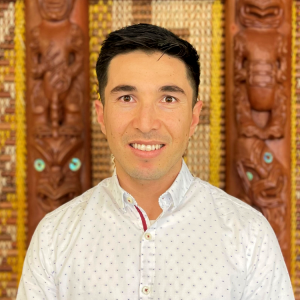 Tēnā koutou katoa and salam.
Tēnā koutou katoa and salam.
I was born and raised in Afghanistan, a country with much beauty, yet often known for its political instability and war. I came to Aotearoa New Zealand in 2014, and now I am also a proud Kiwi.
Tell us about your graduate placement and your host agency.
My graduate placement is with Te Kawa Mataaho, the Public Service Commission. I am part of the Strategy and Innovation team, which provides advice in the areas of public management, governance and accountability and machinery of government. As the sole operator of the International Desk, I am responsible for triaging the international enquiries and promoting Te Kawa Mataaho’s achievements internationally. Part of the International Desk’s responsibility is contributing to shaping Te Kawa Mataaho’s international strategy, and building and maintaining relationships with other jurisdictions and multilateral organisations such as the Organisation for Economic Cooperation and Development (OECD).
Apart from managing the International Desk and collaborating with the Strategy and Innovation team, I run a joint research project with the Australia and New Zealand School of Government for building a development-rich public service.
Is there a career goal you are working towards?
As the title of graduate suggests, I am very new to the public service. This programme will provide me with a better understanding of what aspects and roles of the public service would give me the opportunity to make a positive impact in the lives of New Zealanders and to reach what Maslow called self-actualisation.
Why do you think it’s important to have a diverse public service?
Diversity in the public service is about participation, representation, and legitimacy. The Public Service should reflect the community it serves. In a world that increasingly becomes more integrated, where no country can remain in complete isolation, it is important to have different views as it enriches a country’s perspectives and leads to the development of better public policies.
Although Te Tiriti o Waitangi, the founding document of New Zealand, recognises a bicultural New Zealand, the country is home to a diversity of cultures and ethnicities now. Te Kawa Mataaho, as a central agency with a leadership and oversight role for the public service, attempts to set an example of a diverse public service agency, and it is definitely moving in the right direction.
What advice do you give to graduates considering a career in the public service?
My advice to graduates would be that if you have a spirit of service, the public service is a great place to work. You are likely to be able to connect your everyday work and its potential impact on the lives of New Zealanders, and it will motivate you further. Secondly, when working as a graduate in the public service, you will have an opportunity to learn more about the public service and how the government operates.
More importantly, Aotearoa New Zealand needs your perception and talent to have a better, diverse and inclusive public service.
